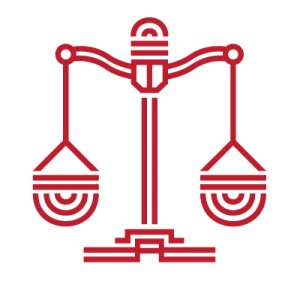Best Employer Lawyers in Midrand
Share your needs with us, get contacted by law firms.
Free. Takes 2 min.
List of the best lawyers in Midrand, South Africa
About Employer Law in Midrand, South Africa
Employer law in Midrand, South Africa refers to the legal obligations, rights, and responsibilities that employers have toward employees and the government. This area of law is regulated by various statutes and common law principles, ensuring that both parties in an employment relationship are treated fairly. Midrand, as a rapidly growing business hub located between Johannesburg and Pretoria, sees a diverse workforce and numerous employers subject to South African labour legislation. Understanding employer law is essential for maintaining lawful, productive, and dispute-free workplaces.
Why You May Need a Lawyer
While some employer-employee issues can be resolved internally, there are many situations where legal expertise can be critical. You may need a lawyer if:
- You want to draft or review employment contracts or policies
- You are dealing with disciplinary actions, terminations, or retrenchments
- You face claims of unfair dismissal or discrimination
- Your business is undergoing restructuring or downsizing
- You are involved in a dispute at the Commission for Conciliation, Mediation and Arbitration (CCMA) or Labour Court
- You want to ensure compliance with the Basic Conditions of Employment Act, Labour Relations Act, and other legislation
- You seek advice on workplace health and safety obligations
- Your workplace is unionised and involves collective bargaining
Seeking legal help early can reduce the risk of costly disputes and reputational damage.
Local Laws Overview
Several key laws govern employer obligations in Midrand, South Africa:
- Labour Relations Act, 66 of 1995 - Outlines rules for fair labour practices, dispute resolutions, and union interactions
- Basic Conditions of Employment Act, 75 of 1997 - Sets minimum standards for working hours, leave, payment, and termination
- Employment Equity Act, 55 of 1998 - Promotes equality and prohibits discrimination in the workplace
- Occupational Health and Safety Act, 85 of 1993 - Obligates employers to provide safe and healthy environments
- Skills Development Act, 97 of 1998 - Encourages training to improve employee skills
Employers in Midrand must also consider local municipal by-laws and adhere to national standards. Non-compliance can result in legal action, fines, or workplace disruption.
Frequently Asked Questions
What should I include in an employment contract?
An employment contract should include job title and duties, working hours, remuneration, leave entitlements, probation and notice periods, confidentiality clauses, and termination conditions. Make sure it complies with the law.
What are the legal grounds for dismissing an employee?
Dismissal must be for a fair reason related to conduct, capacity, or operational requirements, and follow a fair procedure according to the Labour Relations Act.
Is it mandatory to have workplace policies?
While not always legally required, having written policies on issues like leave, discipline, and harassment can protect employers and guide employees clearly.
How do I handle an unfair dismissal claim?
An employee can refer an unfair dismissal dispute to the CCMA. As an employer, you will need to provide documentation and evidence supporting the reason and process for dismissal.
Are there minimum wage laws?
Yes, South Africa has national minimum wage legislation applicable to most sectors. Employers must pay at least the prescribed minimum unless exempted.
What is the process for retrenching employees?
Retrenchment requires proper consultation with affected employees, exploration of alternatives, and fair selection criteria. Employers must provide notice and severance pay as per the Labour Relations Act.
Can I use fixed-term contracts for permanent work?
Fixed-term contracts may only be used for genuinely temporary work. If an employee works for longer than three months without a valid reason, they are deemed to be permanent under the law.
What protection do employees have against discrimination?
The Employment Equity Act prohibits unfair discrimination based on race, gender, age, disability, or other listed grounds. Employers must ensure equal treatment and are subject to strict penalties for breaches.
What records must employers keep?
Employers are required to keep records of contracts, payslips, leave, disciplinary actions, and terminations for at least three years. These must be available for inspection by authorities if requested.
What are my obligations regarding workplace health and safety?
Employers must provide a safe and healthy work environment, assess and control risks, and train employees accordingly. Failing to do so can result in fines and even criminal charges.
Additional Resources
Several organizations and resources can assist employers in Midrand:
- The Department of Employment and Labour
- Commission for Conciliation, Mediation and Arbitration (CCMA)
- South African Board for People Practices (SABPP)
- Labour Court
- Midrand Local Municipality Office for business permits and by-law guidance
- Registered labour consultants and legal practitioners specializing in employment law
These bodies provide guidance, dispute resolution, templates, and policy advice to help ensure compliance and good practice.
Next Steps
If you need legal assistance as an employer in Midrand, consider the following steps:
- Gather all relevant documents, such as contracts, policies, and correspondence
- Identify the main issue or question requiring legal advice
- Contact a qualified attorney or legal advisor specializing in employment law
- Prepare a list of questions and concerns for your consultation
- Implement recommendations and keep thorough records of any actions taken
Early legal advice can help prevent disputes, ensure compliance, and protect your business interests. Do not hesitate to seek expert help if you are unsure about your rights or obligations as an employer.
Lawzana helps you find the best lawyers and law firms in Midrand through a curated and pre-screened list of qualified legal professionals. Our platform offers rankings and detailed profiles of attorneys and law firms, allowing you to compare based on practice areas, including Employer, experience, and client feedback.
Each profile includes a description of the firm's areas of practice, client reviews, team members and partners, year of establishment, spoken languages, office locations, contact information, social media presence, and any published articles or resources. Most firms on our platform speak English and are experienced in both local and international legal matters.
Get a quote from top-rated law firms in Midrand, South Africa — quickly, securely, and without unnecessary hassle.
Disclaimer:
The information provided on this page is for general informational purposes only and does not constitute legal advice. While we strive to ensure the accuracy and relevance of the content, legal information may change over time, and interpretations of the law can vary. You should always consult with a qualified legal professional for advice specific to your situation.
We disclaim all liability for actions taken or not taken based on the content of this page. If you believe any information is incorrect or outdated, please contact us, and we will review and update it where appropriate.











